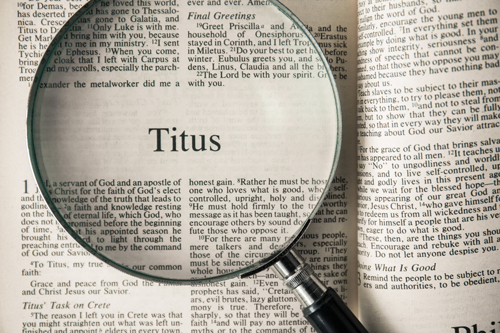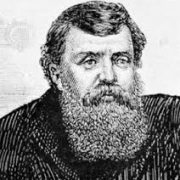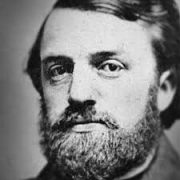Character Counts
If a man is blameless, the husband of one wife, having faithful children not accused of dissipation or insubordination. For a bishop must be blameless, as a steward of God, not self-willed, not quick-tempered, not given to wine, not violent, not greedy for money, but hospitable, a lover of what is good, sober-minded, just, holy, self-controlled (Titus 1:6-8)
When Paul told Titus to look for men to lead God’s work in the many cities and churches on the island of Crete, he told Titus to look for something very special: character.

The list in Titus 1:6-8 (and in 1 Timothy 3:1-7) means that God has specific qualifications for leaders in the church. Leaders should not to be chosen at random, or just because they volunteer, or because they aspire to the position, or even because they are “natural leaders.” Leaders should be chosen because they match the qualifications listed here. It is fine if a man thinks he is called; yet he must also be qualified.
It is also significant to note that the qualifications for leadership in Titus 1:6-8 have nothing to do with giftedness. Paul didn’t say to Titus “Find the most gifted guys.” We might say that it is easy for the Lord to grant gifts by the Holy Spirit as He wills (as in 1 Corinthians 12:11), but developing character takes time and a real relationship with Jesus Christ.
– Going to seminary by itself doesn’t make one qualified for spiritual leadership.
– Being a good talker doesn’t make one qualified for spiritual leadership.
– Natural or spiritual gifts in themselves do not qualify one for spiritual leadership.
– What one gives in money or volunteer time does not qualify them for spiritual leadership.
– What qualifies a man for spiritual leadership is godly character – and godly character established according to the clear criteria Paul will list.
However, this is not a rigid list which demands perfection in all areas. It provides both goals to reach for and general measure for selection. We should take this list and ask “Does the man in question desire all these things with his whole heart? Does that desire show itself in his life?” Titus was to take the following list, find the men who best fit the description, and then use the list as a training guide to disciple these men.
What we should really remember is that these qualifications are valuable for every person – not only those who aspire to leadership. They are clear indicators of godly character and spiritual maturity; they can give a true measure of a man or woman of God.
It is good to look at this list piece by piece. But remember this: among God’s people we shouldn’t expect that people will measure us according to our intentions, our personality, or even our gifts. God set the principle here: we should be measured according to our character. This drives us all the more to look to Jesus, trusting Him for the continual growth that should mark God’s people.











